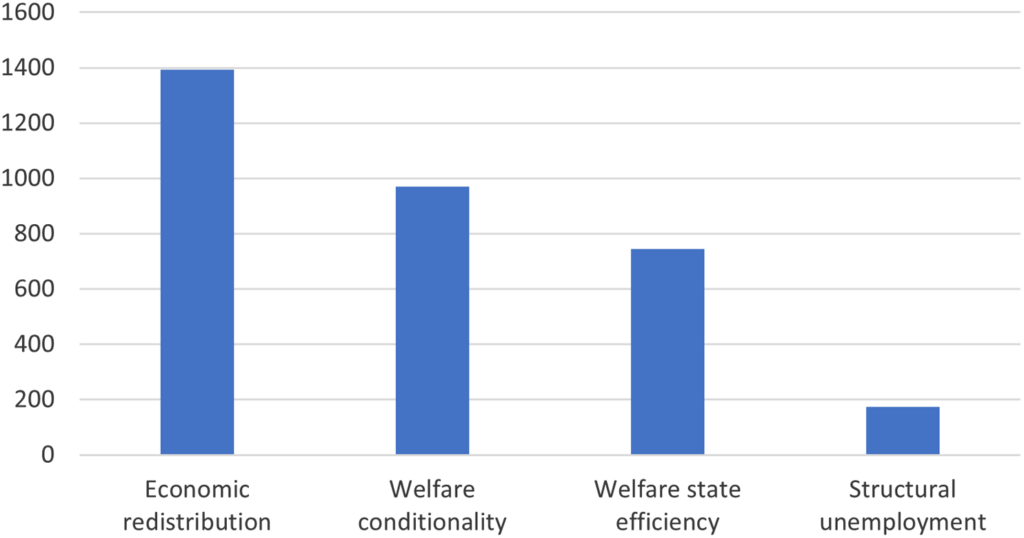Universal Basic Income (UBI) reached political agendas as a proposal to radically reform welfare systems, followed by scholarly interest in its public legitimacy. While surveys find UBI support to be mostly redistribution-driven, the discussion in science and media suggests a more nuanced understanding. To comprehensively grasp the public response to UBI policy, this article explores the controversies surrounding UBI policy through a content analysis of Dutch tweets. In addition to identifying established controversies, our analysis points to two avenues for the study of UBI legitimacy. First, a multidimensional measure of UBI support should include redistributive, conditionality, and efficiency aspects. Second, dissatisfaction with targeted activation policy and ‘post-productivist’ attitudes should receive greater attention as drivers of UBI support. Overall, we find the pressure to reform welfare is more than the promise of a ‘free lunch’: it is anchored in fundamental critiques of economic and welfare institutions.

Gielens, E., Roosma, F., & Achterberg, P. (2022). More than a Free Lunch: A Content Analysis of the Controversies Surrounding Universal Basic Income on Dutch Twitter. Social Policy and Society, 1-21. doi:10.1017/S1474746422000422
